
VICTOR FRANKL – THE BUDDHIST
“Between stimulus and response there is a space. In that space is our power to choose our response. In our response lies our growth and our freedom.”
Victor Frankl was an Austrian psychiatrist and Holocaust survivor. He was the founder of logotherapy, a school of psychotherapy that felt the purpose in life was the search for meaning. I never realized Victor Frankl was a Buddhist.
What a beautiful description of mindfulness. The capacity to be aware of what is happening, step back into a mindful space or pause, and then make a skillful choice of how one is going to respond rather than react.
by Dr. Phil Blustein

Just a Problem to Be Solved, Not Being the Problem
I have just taken up Pickleball with fun and frustration. I hit the ball into the net. This just isn’t about a shot that was intended to go over the net but didn’t. It means a whole lot more than just that. There is this belief that not only is the shot bad but “I” am bad. I have a childhood belief that I need to be perfect in order to feel safe and loved. The imperfect shot triggers this historic memory and the immediate associated self-criticism and judgment! Everything that we encounter is referenced against our personal unique belief system that represents who we believe we are. What core belief do you have about yourself that is the basis for judging your present moment to moment action?
If we bring awareness to this process we have the potential to move beyond being trapped by our conditionality. I would like to suggest a 4 step process to help lessen our self-criticism.
1) SENSATION: When your mind starts to judge and criticize you immediately look just for the initial stimulus. For me it is: “The ball was hit into the net.” That’s all that happened to start. Everything else is an add on.
2) SELF-REFERENTIAL JUDGMENT: Next look for the judgment of self that arises. In my example it is: “This is terrible. I am terrible. How could I have missed that shot. I should have done better.” Identify the criticism of self that has arisen from the initial sensation. Isn’t it amazing what we create from hitting a ball into the net. A self comes into existence and then we judge it. If we are aware of our personal story and our unmet need we can even look for what is calling to be heard in the moment. My need to be perfect to feel loved.
3) NON-SELF-REFERENTIAL DISCERNMENT: Now we inquire what would the response be if the present moment experience was not referenced against our sense of self. The observation would be: “The ball was hit into the net. The aim of the game is for the ball to go over the net and ideally score a point.” Nothing about me! No judgment or criticism. Only information about the action and what it informs me about how to improve. Everything is meant to be the way it is driven by either uncontrollable external circumstances or by our subconscious automatic internal conditioned actions.
4) SKILLFUL ACTION: “What needs to be done if it wasn’t about me?” At this point you bring your attention back to the original sensation and enquire what needs to be done about what has happened, without a sense of self being present. In many situations nothing needs to be done. What we normally believe we are dealing with is: “What if, not what is.”
Next time your mind starts to yell at you, Pause and then try this 4 step inquiry. It is amazing to witness how our minds create such illusions based on what actually happens.
by Dr. Phil Blustein

Walking Each Other Home
Ram Dass, Mirabai Bush – in Walking Each Other Home
This person has a body and a mind, just like me.
This person has feelings, emotions, and thoughts, just like me.
This person has experienced physical and emotional pain and suffering, just like me.
This person has at some time been sad, disappointed, angry, or hurt, just like me.
This person has felt unworthy or inadequate, just like me.
This person worries and is frightened sometimes, just like me.
This person will die, just like me.
This person has longed for friendship, just like me.
This person is learning about life, just like me.
This person wants to be caring and kind to others, just like me.
This person wants to be content with what life has given them, just like me.
This person wishes to be free from pain and suffering, just like me.
This person wishes to be safe and healthy, just like me.
This person wishes to be happy, just like me.
This person wishes to be loved, just like me.
Now, allow wishes for well-being to arise:
I wish this person to have the strength, resources, and social support they need to navigate the difficulties in life with ease.
I wish this person to be free from pain and suffering.
I wish this person to be peaceful and happy.
I wish this person to be loved . . . because this person is a fellow human being, just like me.
What a beautiful poem that demonstrates how we are all interconnected and similar through our common needs, fears and desires. When one is tempted to criticize and judge other, bring to mind what connects us and allow that be what guides your behaviour.
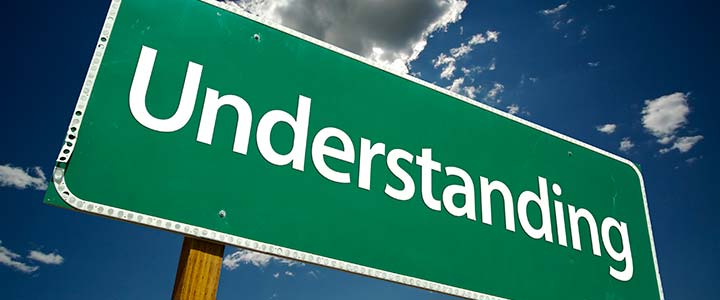
Acceptance
Acceptance is not what you might think. A lot has been said about mindfulness being nonjudgmental. This does not mean we don’t have feelings about things that might be unpleasant. It just means that we should spend a moment accepting what is right in front of us or within us before we rush to making a hasty decision based on strong emotions.
Acceptance does not mean:
- You deny your feelings
- You have to like it.
- You have to “suck it up”
- You are neutral or indifferent to an injustice.
- You have to make something positive out of it
- You have to agree with what is present
In the coolest form of acceptance is non-resistance. This enables us to meet whatever is showing up and getting to know each intimately before we investigate it and ask ourselves, “What is called for now?”
by Dr. Allan Donsky

Is Life About a Sit Down Dinner or a Buffet
Am I a Buddhist? Or is Buddhism just one belief system that influences my world view? At one point I would have called myself a Buddhist. But I began to appreciate that my perspective on life has been impacted by many systems. Somatic therapy by Peter Levine, Carl Jung and his dream work, Internal Family Systems therapy by Richard Schwartz etc.
Life is not about sitting down every day to the same set dinner but opening to the possibility of sampling multiple different tastes from a buffet. There is no need to maintain absolute fidelity to the original teachings of any belief system. The truth is not an expression of a single voice. There is no one truth except what you stitch together to make your truth. All that matters is what works for you. I call myself a “Pluralist.”
by Dr. Phil Blustein

Life as the Unknown
Happy and not yet happy
Sad and not yet sad
Sick and not yet sick
Dead and not yet dead
Do you know what is going to happen in the next moment? If you do, let us buy a lottery ticket together!
We live our life hoping and expecting that only good things will happen. Death. Who needs to look at that? It is something that is going to happen in the far distant future so why think about it. Suffering. Another one of those things that are unpleasant so I don’t want to reflect on that either. If only we could live our life sheltered from these traumas. That can happen, but one needs to be dead or in a coma. And when something unpleasant happens we react with surprise and disbelief. It is as if it is an affront to you. Why would this happen to me? How dare this happen to me!
The reality is that there is the capacity for good and bad things to happen and for the most part we have no control over these events in life. Health and illness, birth and death, safety and trauma, beginning and ending of relationships. We need to contemplate on the fact that there is the potential for both happiness and suffering to occur in any moment.
by Dr. Phil Blustein

TRUTHS of the nature of REALITY
*Reality is conditionally created
Every moment is a constant autonomous subconscious interpretation of perceived causes and conditions referenced against a personal arbitrary belief system to create a conditioned enduring sense of self.
*Attachment to self leads to suffering
*Non-Attachment to self leads to freedom from suffering
Can one rest in the awareness of the experience that contains the story of self rather than be the sense of self that believes it is having the experience?
*Transformation from self-referential judgment to non-self referential discernment is the segue to liberation
Can one reference experience against universal ethical and compassionate standards and not our personal belief system of unmet psychological needs?
*Choice is possible for skillful action
by Dr. Phil Blustein

MINDFULNESS IS A De-Evolutionary PROCESS
We take such pride in being human. We are so advanced relative to any other living creature in the world. Just compare our mental abilities with a dog, cat, bird, elephant etc. However, are we really that superior to the rest of existence.
One of the main determining factors for our behavior is the biologic imperative of survival. We judge each moment against the marker of will it help one’s survival or not. We have a negative bias in that we are always scrutinizing whether the present moment is for our benefit or not. This historic primal evaluation of physical threat has now been replaced by psychological concerns. We as humans have “evolved” to a higher and different standard to reference all experience. There is no question we want to live but judging our existence against perceived psychological threats may actually limit our capacity to be present moment to moment with some peace and compassion. Just think of how our normal self-referential judging mind leads us to constant criticizing of our self, causing personal suffering.
Mindfulness is asking us to step back from this evolved instinctive reaction to each moment and rest in a new skillful relationship of awareness, stillness and choice. We are asked to De-evolve to a place that predates our apparent evolution to a conditioned created sense of self to non-interpretative knowing of experience.
by Dr. Phil Blustein

DO WE HAVE TO KILL OURSELF TO BE SELF LESS
“Be one with self, Not the one that is self.“
Is the ultimate goal of mindfulness EGOCIDE? Do we need to kill our ego to be free of self? Who would you be in this world if you weren’t your sense of self? How would you navigate your existence? Pay your bills, have a job and family and interact with others. The sense of self plays an important functional role.
The key to freedom from pain and suffering is to understand the true nature of self. That it is a temporary conditional construct arising moment to moment dependent on one’s habitual patterning. It is the ability to live the paradox of self. To hold self as if it is real, but know that it is an illusion. Not true. To be present in life non-attached to the sense of self. It is a relationship of co-existence, not annihilation.
by Dr. Phil Blustein

The Nature of Thoughts
Where is a thought? What is a thought?
Can you touch it?
Can you feel it?
Empty of form
When a thought comes does it hold you tightly? Invisible chains
Real as steel
Full of form
Thought is empty Thought has form
Is thought empty form?
Is thought formed emptiness?
What is true?
by Dr. Phil Blustein

MINDFULNESS: Is it Being in the Now?
“Is it about being in the now OR being ok with whatever is now”
When people talk about mindfulness the impression is that it is all about being in the present moment. “The Joy of Being in the Now.” But is that what mindfulness is about? If you are aware of your sadness, guilt, shame and anger you may actually be MORE sad, guilty, shameful and angry. You are suddenly aware of what you are feeling while previously you were lost in the emotion and did not know what you knew. You may actually suffer more with being in the now!
There is no question that knowing what is present is key because if you didn’t know what was happening you would not have the capacity to understand how to act on it. What is it that one wants in the present moment? We interpret every experience and it is that judgment that determines whether we feel suffering or joy. The essence of mindfulness is what you do with what you know. Can you be present in a skillful relationship with whatever your present moment experience is?
by Dr. Phil Blustein
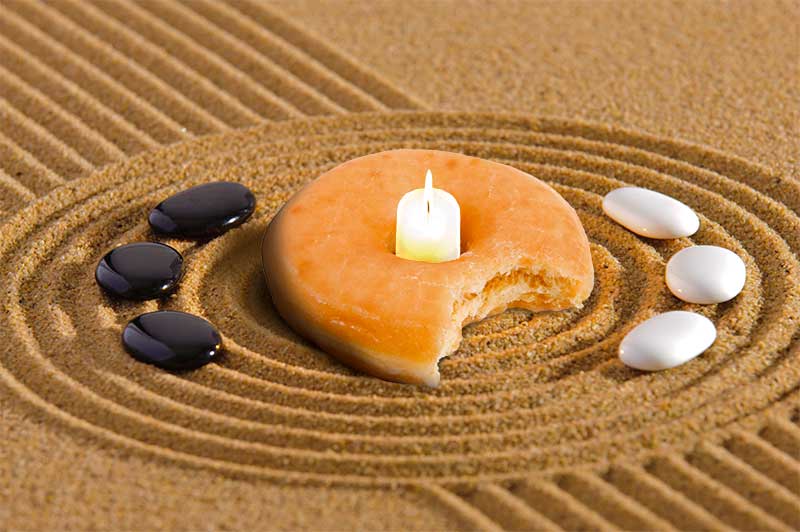
HUMANS ARE DONUTS
“Eat Your Way to Holeness”
I was in a contemplative state and pondering the self. What came to mind was the image of a donut. Then there was this spontaneous dissolving of the donut all the way around until nothing was left. No inside or outside.
When you think of a donut there is the circular rim of dough with a hole in the middle. This dough separates what exists inside and outside of the donut. The centre of the donut is the same essence as what is present outside the rim. Nothingness. The circular rim of dough I believe represented the protective shell of my ego. With mindfulness and insight the ego starts to dissolve allowing for the opportunity of connection between these two spaces. When the interface of the donut rim is gone the interior and exterior become unified. We remove the limiting boundaries of the ego that separates us from each other. This was the hole or opening to interconnectedness.
When we remove the limiting boundary of ego what is left? Who are we? Nothing! Just the emptiness and spaciousness of the hole in the centre of the donut.
I found the imagery and what it represented insightful and awe inspiring. I often bring to mind this image and allow that wisdom to inform me. My advice is to eat your way to holeness.
by Dr. Phil Blustein

YOU NEED TO BE THE NOBODY YOU WERE BEFORE YOU BECAME A SOMEBODY
Jack Engler in the 1970’s said: “You need to be somebody before you are nobody.” He was commenting on the fact that there needs to be an intact sense of self before you start to take it apart. I would suggest that we look at it from the other direction. Our biggest problem is our self! We are not good enough, pretty enough, smart enough, successful enough etc. It all revolves around who we believe we are and the belief that we are flawed. Is this all we are? Are we more than our self? Who were we before we had a self?
Even without a self we are these wonderful humans with a tremendous potential. To be human is to be divine. The unbelievable capacity to connect with the world through our senses. The universal and egalitarian energy we all have that connects us. There is also the unique gift each one of us was given that calls to be lived through us. Whether it is artistic, dramatic, scientific, caring, athletic etc. One has self-worth because “you are, not who you are.” Unfortunately, this primal essence is obscured by the superimposition of a created self that masks everything else.
We need to look beyond the clouds of deception of our self to see what our true nature is. When your mind starts to criticize and judge you, remind yourself and connect back with this nobody you were before you were a somebody. Become the SELF you were before you were a self. This is not about ego dissolution but discovery of who you are beyond your story.
by Dr. Phil Blustein

THE TRUTH IS NOT IN WHAT IS HEARD BUT WHAT IS NOT SAID
Our minds speak to us constantly and we listen. Who else would be talking to us. We accept without question what is said and react from that reference point. However, is this the truth of the moment? I lose my keys and become very angry with myself for being so careless. Is this all that is going on or is there something that is not being said but lives below the surface.
Growing up I learned the importance of “being perfect” in order to feel safe. Losing the keys triggered this belief of what it meant to feel unloved. What happens normally is that present moment experiences trigger historic memories of one’s perceived psychological unmet needs and perceived deficiencies. The truth of what is happening in the moment is buried below the superficial and current understanding of what has gone wrong. Beneath the mask of our sense of self hides our underlying truth. One needs to dig deeper and allow one to hear the unspoken truth from the source of one’s wounding.
by Dr. Phil Blustein

MINDFULNESS IS ENGAGED NON-ATTACHMENT
When we get upset what do we do with it? Our normal reaction is to deny or run away from it. We build walls to protect ourselves from our pain. Experiential avoidance does not solve the problem. If anything, it may aggravate and prolong the issue as we never address what is happening. Mindfulness asks us to paradoxically approach our suffering. We need to become intimate with what we are experiencing with interest and curiosity. There can be no resistance but only openness. The only issue with engaging with our present moment experience is that we typically identify with our sense of self and own the pain and suffering of our identity. It is not that we create a sense of self that suffers, but we attach to it! We need to know what is happening but from the perspective of non-attachment with our sense of self. We need to rest in the awareness of mindfulness. It is a paradoxical relationship as we feel our experience but don’t own it. The essence of mindfulness is engaged non-attachment with self.
by Dr. Phil Blustein

MINDFULNESS IS ABOUT THE PREVIEW NOT THE REVIEW
I send several email invitations and call a friend with no response. What is going on? Is my friend deliberately ignoring me? I am getting angry about what is happening. I finally reach them and blurt out my anger without any control or care. I find out that I was using the wrong email and my friend had been going through some recent trauma and didn’t respond. I felt upset that I had acted that way. Does this happen to you? Are you saying or doing something before you really think about it? Our minds are for most of the time not under our control. We autonomously, subconsciously and spontaneously reference every moment against the belief system of who we believe we are. We are constantly judging whether we are acting in a way that agrees or disagrees with our fixed beliefs. We often become aware after we have acted, often not in the most appropriate way. We are left with reviewing what we have done and trying to repair our unskillful behavior. Mindfulness is asking us to create a mindful pause and hopefully bring awareness to the intentionality of our action before we act. Can we make a wise choice at the point of being able to preview what we intend to do, rather than reviewing how we have already acted?
by Dr. Phil Blustein

SAY HELLO TO YOURSELF
How do we normally talk about ourselves? It is from the first person perspective. We use the pronouns “I, me, we and us.” This clearly delineates one as being in charge of what is happening. What would it be like to shift the perspective from first to third person? The pronouns we use for third person perspective are: “He, she, it, they, them or one’s proper name.” What is happening is not being told from a personal perspective. It is as if someone else is describing what is happening. If we were to use a third person perspective to describe what our actions are it tends to externalize our sense of self. It places us in the perspective of a witness observing what we believe our sense of self to be doing. It is a trick of language that supports non-attachment with the sense of self. For example, I lose my keys and I am angry, upset and self-critical. I can frame the experience from the third person perspective by saying: “Philip is angry for losing the keys.” Try this out when labeling your experience as a way to help support dis-identification.
by Dr. Phil Blustein

Name It To Frame It
How can we help support bringing awareness, meta-awareness and some distancing from our sense of self in our present experience as we practice mindfulness? Labelling is a very simple, practical and effective technique to do this. Language can be very helpful to direct our focus. Normally we are so caught up with what is happening that we are not aware of what we are aware of. In labeling one pauses and then identifies what dominant thought, emotion or physical sensation is present. One can state it as a generality such as: “Thinking, Feeling an emotion or Feeling a physical sensation.” One can be more specific by identifying the actual thought or feeling such as: “Judging, Sadness, Cramping etc.” It is helpful not to use the word “I” such as I am sad, I am planning or I am feeling pain. This is a way to move away from the belief in an enduring sense of self that is owning the experience. Mindfulness is a process. Labelling can help support this by saying: “KNOWING sadness, Knowing pain, Knowing planning.” In finding the right label for the experience there needs to be a stepping back from ownership of the experience to be able to have the perspective to know what is happening. Name it to frame it by labeling creates a brake from the automatic and autonomous reactive self-referential judgment.
By Phil Blustein

META-AWARENESS
I know what is happening, The problem is I just don’t know that I know what I know
Do you ever feel angry, sad, happy or guilty? And when you feel this way are you just angry, sad, happy or guilty but don’t know that you are feeling the way you are feeling. Normally we are just caught up with what we are experiencing and are totally engaged and identified with the thought or emotion. There is no possibility of a discerning perspective. Mindfulness is how one is in relationship with the present moment. There needs to be some distancing from ownership of the experience in order to be able to dis-identify, embody and investigate what is happening. Meta-awareness is the initial entry into mindfulness.
By Phil Blustein

MINDFULNESS
Awareness of the experience that contains the story of self
Not the sense of self that believes it is having the experience
By Phil Blustein

DEATH “Is every moment a gift of time or a loss of life?”
How do you face the possibility of death? Avoid thinking about it? With fear? Acceptance? When we think about our death we are often frightened and angry about the possibility of the loss of living. We will not be able to savor all those wonderful experiences of being human. It will be taken away from us. Is every moment taking us closer to death and a loss of the time we have to live? This fails to acknowledge that the inevitability of existence is death. Death is the expected outcome of birth. We are in a constant debt to death. We are only heading in one direction. We don’t normally control when we are going to die. It could happen in the next instant. I believe that we need to appreciate each moment as a gift of time that potentially we may not have had, rather than see it as a loss as something that is being taken away from us.
By Phil Blustein
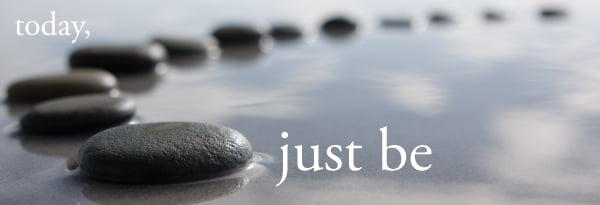
WHAT TO DO IN ORDER TO BE “It requires a lot of doing for nothing to happen”
It is often said mindfulness is about: “Just being and not doing.” In being, one is with the present moment just as it is without having a need to change it. It is a direct experience of what is happening with equanimity. There is no preference making. You may have spontaneously experienced this when you have engaged in the flow of doing something that you are completely engrossed with. Listening to music, photography, art, singing etc. When we are DOING there is a conscious effort to achieve something. One is actively thinking and acting for a certain goal. The big question is what to do in order to be. It is not so simple as saying “just be.” This requires a lot of effort. The first problem is that we are just not aware of what is happening. We may be angry, sad or happy but we just don’t know that we are angry, sad or happy. Furthermore, our normal instinctive response is to judge all our experience against our personal arbitrary belief system. We are constantly identifying with our sense of self. In being, we are asked to suspend judgment and respond in a way that runs contrary to our normal reactive way. It initially requires a lot of doing to develop intentional and sustained awareness and continual reflective inquiry into the true nature of self in order to be in a mindful relationship with non-attachment with the sense of self. There is a lot to do in order to just be.
By Dr. Philip Blustein

BEING YOUR SELF IS FINE AS LONG AS YOU DON’T TAKE IT PERSONALLY
2600 years ago the Buddha said: “Anything you attach to as I, me or mine leads to suffering.” He was able to understand how we create our pain. Can you find your self? Where is it located? Does it have boundaries, a shape, a color, substance? Our modern day MRI brain scanners have not been able to identify the self. Why. Because it is not an enduring structure. It is created moment to moment as a subconscious autonomous automatic interpretation of perceived causes and conditions referenced against our personal arbitrary belief system. It is a temporary defensive creation that helps deal with our triggered woundings to feel safe, loved and worthy. When we identify with the self, we take on the associated suffering that exists with it. When we can recognize that there is a conventional self but we are not this conditioned self we can find the way to freedom. It is just a tool to navigate our world.
By Dr. Philip Blustein
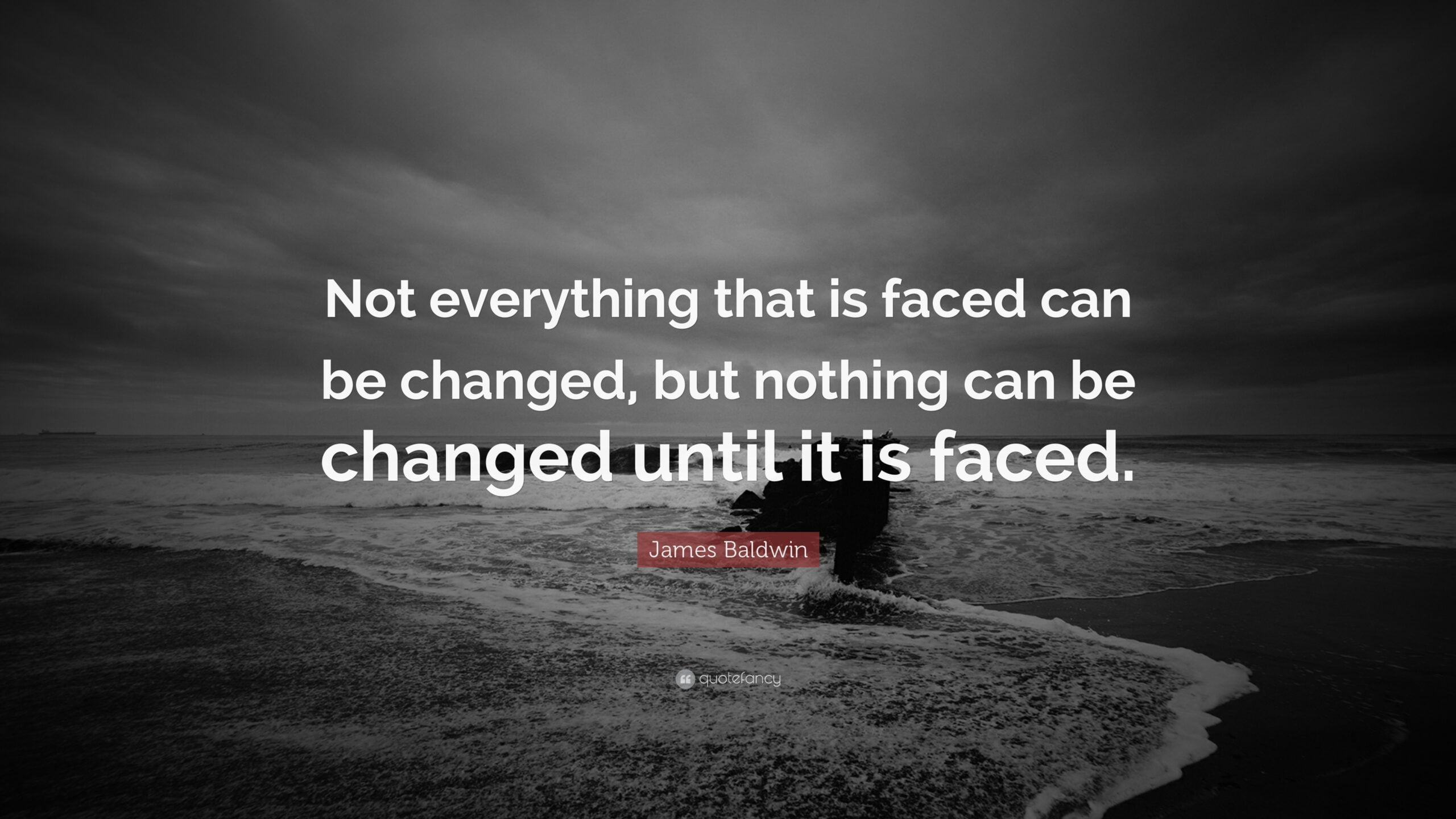
JAMES BALDWIN “Not everything that is faced can be changed but nothing can be changed until it is faced”
This comment by James Baldwin is a perfect statement of how we need to be in relationship with the present moment. An unpleasant experience arises. Our mind starts to criticize us and we feel anxious and judged. What is your typical response? Do you turn towards these negative feelings or try and deny and run away from what is happening? Most of us don’t want to face what makes us feel uncomfortable. Is this the most effective way to deal with the situation? Unlikely. If we try and push away or put up a wall to what bothers us it will still be there to haunt us. We may have pushed it out of our consciousness but it is still lurking ready to be triggered again. It will never become resolved and only continue to grow as we keep adding more to the pile of our emotional discontent. Mindfulness asks us to face and then engage our experience. We can do this experientially or cognitively. Turning your attention to your body and allowing yourself to experience the sensations without resistance can allow the trauma held in our bodies to start moving through us. One can also bring curiosity to the moment and inquire what is calling to be heard. What is this moment trying to inform you about? Only by facing what bothers you and holding it with compassion and wisdom can you develop the capacity to integrate the underlying psychological woundings that limit your ability to have freedom.
by Dr. Phil Blustein

AWE “Look with not knowing In order to see what is not known”
Smell a flower. Eat chocolate. See clouds in the sky. Hear the chirping of a bird. Touch someone you love. Done it before. Nothing new. What’s next. It takes quite the exceptional experience for us to even recognize it. The biggest problem is that we are just not present to what we experience. The other issue is that familiarity breeds indifference. We look at life through the lens of knowing what is going to be experienced as we have had the experience before. There needs to be a shift in order to allow awe in each moment. We need to suspend expectation and be open to what is new in each moment. We need to be with life without knowing what to expect in order to experience what is not known. Awe in the moment is revealed to us. It is not something we look to find.
Dr. Philip Blustein

GIVE YOURSELF PERMISSON TO BE PERFECTLY HUMAN NOT HUMANLY PERFECT
Do you have a mind that constantly criticizes you for not getting it right? You have a belief that there is a certain way things should be and the way you should be. We have these unreasonable expectations that we will act perfectly according to this identity we hold ourselves to be. The problem is that this is impossible. The one thing we can be perfect at is being human. “You can’t do human wrong.” Being human means that you are not perfect! You will judge yourself constantly for not getting it right. You will not live up to your expectations. Give yourself permission to this reality. Permission to be as you are not as you expect yourself to be. It is when we try and be more than human that we run into trouble. We need to be kind and give ourselves permission to be perfectly human, not humanly perfect
by Dr. Phil Blustein
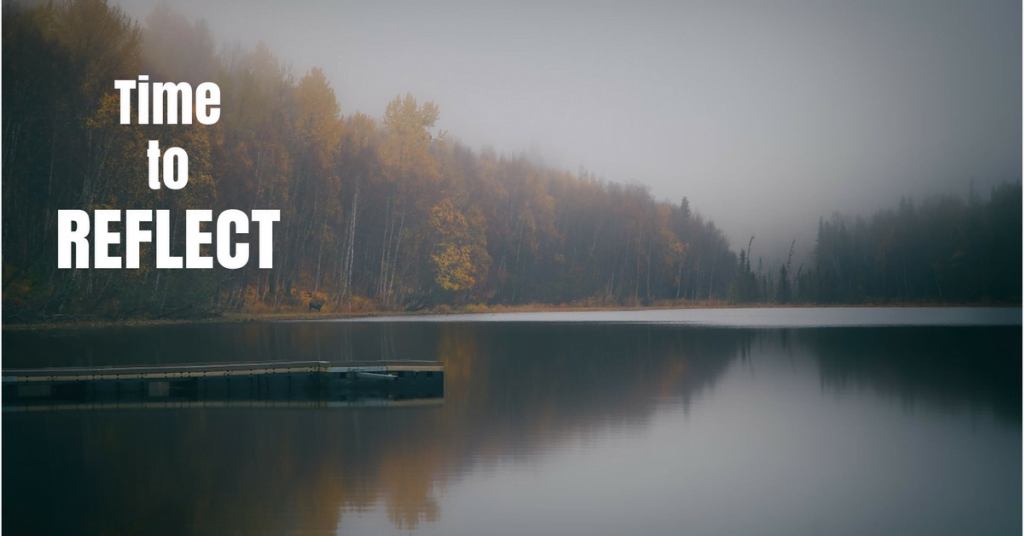
SUFFERING IS IN THE “I” OF THE BEHOLDER – “WE NEED INSIGHT NOT ISIGHT”
How do we see each moment? Why is it that someone might feel threatened or sad while someone else might feel calm and assured under similar circumstances? We all have our unique stories about who we believe we are. They were initially formed when we were young and in relationship with our caregivers. This has been subsequently shaped by our society. Everything that we are in contact with is referenced against our belief system that defines our identity. Does it agree or not? What we need to be able to do is to bring insight into how we see our experience through the Isight of who we believe we are. It is with this clarity that we can understand the true nature of reality and allow for non-attachment with our sense of self and rest in mindful awareness.
by Dr. Phil Blustein

IS HAPPINESS FILLING A HOLE OR RECOGNIZING THAT YOU ARE WHOLE
Do you live your life from the place that says: “If only I had this I would be happy!” And then what happens when you get it.
The new car develops engine trouble. The wonderful new job has a terrible boss. The blissful marriage ends in divorce. The sweet kids become drug addicts. Whenever you rely on something external to yourself to provide your happiness you will never be happy. There is no way to be able to control what exists outside of you. We have enough trouble controlling what goes on inside of us! We live a life from a position of deficiency that will never result in being happy by trying to fill the hole.. We need to recognize that we are as perfect and complete as we can be in the moment. We need to accept and rejoice in the way we are and what we have now. There needs to be gratitude for the whole picture. We need to look at acquiring things or developing new relationships as changing our wholeness, not completing it.
By Dr. Philip Blustein

A GREATER TRAGEDY THAN THE FEAR OF DEATH IS THE FEAR TO LIVE
Benjamin Franklin said: “Most people die at 25 but aren’t buried until their 75.” Are you dead? Not physically, but dead to fulfilling one’s potential of who you are beyond your story of self. Whose life are you living? One that you have chosen or one that has been given to you? What do you believe that you are capable of doing? Do you live your life “Walled in Alive” by your limiting beliefs? Are you aware of what your unique gifts and passions are calling to be lived through you? Or are you dead to this possibility? It requires a lot of commitment, exploration, allowing, practice and courage to be willing to be who you really are. Are you dead already and just waiting to be buried? Start by asking the question: “Who am I? What is meaningful in my life? What is calling to be heard?” Act now, rather than wait until they bury you.
by Dr. Phil Blustein
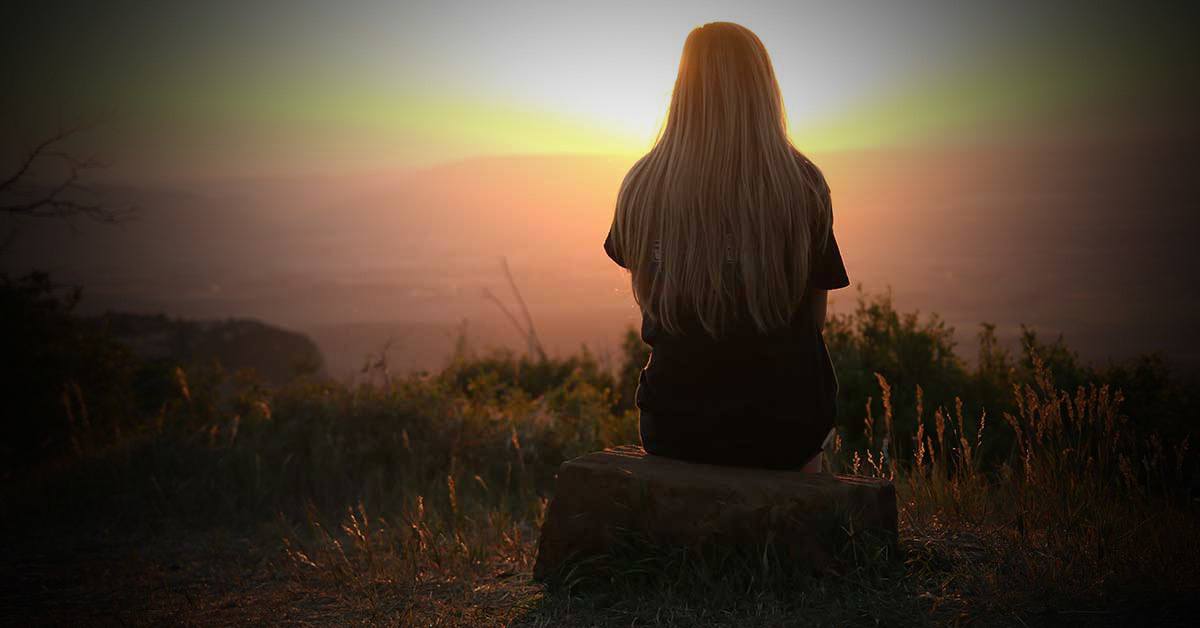
“WAIT” FOR MINDFULNESS
WAIT – Regulate through the breath and neutral body sensations
*WHAT AM I THINKING – SMILE at Awareness
(Sustained, Meta-awareness, Intentional, Labeling, Evoked Cues)
*WHAT AM I TOUCHING – Embodied Engagement
*WHY AM I THINKING THIS – DISCERNMENT leading to NON-ATTACHMENT with self
*WHAT AM I TRYING TO DO – AIM for Skillful action
(Altruistic, Intentionality, Moral)
by Dr. Phil Blustein
More Mindful Musing
VICTOR FRANKL – THE BUDDHIST
“Between stimulus and response there is a space. In that space is our power to choose our response. In our response lies our growth and our freedom.” Victor Frankl was an Austrian psychiatrist and Holocaust survivor. He was the founder of logotherapy, a...
Just a Problem to Be Solved, Not Being the Problem
I have just taken up Pickleball with fun and frustration. I hit the ball into the net. This just isn’t about a shot that was intended to go over the net but didn’t. It means a whole lot more than just that. There is this belief that not only is the shot...
Walking Each Other Home
Ram Dass, Mirabai Bush – in Walking Each Other Home This person has a body and a mind, just like me. This person has feelings, emotions, and thoughts, just like me. This person has experienced physical and emotional pain and suffering, just like me. This person...
Acceptance
Acceptance is not what you might think. A lot has been said about mindfulness being nonjudgmental. This does not mean we don’t have feelings about things that might be unpleasant. It just means that we should spend a moment accepting what is right in front of us...
Is Life About a Sit Down Dinner or a Buffet
Am I a Buddhist? Or is Buddhism just one belief system that influences my world view? At one point I would have called myself a Buddhist. But I began to appreciate that my perspective on life has been impacted by many systems. Somatic therapy by Peter Levine, Carl...
Life as the Unknown
Happy and not yet happySad and not yet sadSick and not yet sickDead and not yet dead Do you know what is going to happen in the next moment? If you do, let us buy a lottery ticket together! We live our life hoping and expecting that only good things will happen....
TRUTHS of the nature of REALITY
*Reality is conditionally createdEvery moment is a constant autonomous subconscious interpretation of perceived causes and conditions referenced against a personal arbitrary belief system to create a conditioned enduring sense of self. *Attachment to self leads to...
MINDFULNESS IS A De-Evolutionary PROCESS
We take such pride in being human. We are so advanced relative to any other living creature in the world. Just compare our mental abilities with a dog, cat, bird, elephant etc. However, are we really that superior to the rest of existence. One of the main determining...
DO WE HAVE TO KILL OURSELF TO BE SELF LESS
“Be one with self, Not the one that is self.“ Is the ultimate goal of mindfulness EGOCIDE? Do we need to kill our ego to be free of self? Who would you be in this world if you weren’t your sense of self? How would you navigate your existence? Pay...
The Nature of Thoughts
Where is a thought? What is a thought?Can you touch it?Can you feel it?Empty of formWhen a thought comes does it hold you tightly? Invisible chainsReal as steelFull of formThought is empty Thought has formIs thought empty form?Is thought formed emptiness? What is...
MINDFULNESS: Is it Being in the Now?
“Is it about being in the now OR being ok with whatever is now” When people talk about mindfulness the impression is that it is all about being in the present moment. “The Joy of Being in the Now.” But is that what mindfulness is about? If you...
HUMANS ARE DONUTS
“Eat Your Way to Holeness” I was in a contemplative state and pondering the self. What came to mind was the image of a donut. Then there was this spontaneous dissolving of the donut all the way around until nothing was left. No inside or outside.When you...
YOU NEED TO BE THE NOBODY YOU WERE BEFORE YOU BECAME A SOMEBODY
Jack Engler in the 1970’s said: “You need to be somebody before you are nobody.” He was commenting on the fact that there needs to be an intact sense of self before you start to take it apart. I would suggest that we look at it from the other...
THE TRUTH IS NOT IN WHAT IS HEARD BUT WHAT IS NOT SAID
Our minds speak to us constantly and we listen. Who else would be talking to us. We accept without question what is said and react from that reference point. However, is this the truth of the moment? I lose my keys and become very angry with myself for being so...
MINDFULNESS IS ENGAGED NON-ATTACHMENT
When we get upset what do we do with it? Our normal reaction is to deny or run away from it. We build walls to protect ourselves from our pain. Experiential avoidance does not solve the problem. If anything, it may aggravate and prolong the issue as we never address...
MINDFULNESS IS ABOUT THE PREVIEW NOT THE REVIEW
I send several email invitations and call a friend with no response. What is going on? Is my friend deliberately ignoring me? I am getting angry about what is happening. I finally reach them and blurt out my anger without any control or care. I find out that I was...
SAY HELLO TO YOURSELF
How do we normally talk about ourselves? It is from the first person perspective. We use the pronouns “I, me, we and us.” This clearly delineates one as being in charge of what is happening. What would it be like to shift the perspective from first to third person?...
Name It To Frame It
How can we help support bringing awareness, meta-awareness and some distancing from our sense of self in our present experience as we practice mindfulness? Labelling is a very simple, practical and effective technique to do this. Language can be very helpful to direct...
META-AWARENESS
I know what is happening, The problem is I just don’t know that I know what I know Do you ever feel angry, sad, happy or guilty? And when you feel this way are you just angry, sad, happy or guilty but don’t know that you are feeling the way you are feeling. Normally...
MINDFULNESS
Awareness of the experience that contains the story of selfNot the sense of self that believes it is having the experience By Phil Blustein
DEATH “Is every moment a gift of time or a loss of life?”
How do you face the possibility of death? Avoid thinking about it? With fear? Acceptance? When we think about our death we are often frightened and angry about the possibility of the loss of living. We will not be able to savor all those wonderful experiences of...
WHAT TO DO IN ORDER TO BE “It requires a lot of doing for nothing to happen”
It is often said mindfulness is about: “Just being and not doing.” In being, one is with the present moment just as it is without having a need to change it. It is a direct experience of what is happening with equanimity. There is no preference making. You may have...
BEING YOUR SELF IS FINE AS LONG AS YOU DON’T TAKE IT PERSONALLY
2600 years ago the Buddha said: “Anything you attach to as I, me or mine leads to suffering.” He was able to understand how we create our pain. Can you find your self? Where is it located? Does it have boundaries, a shape, a color, substance? Our modern day MRI brain...
JAMES BALDWIN “Not everything that is faced can be changed but nothing can be changed until it is faced”
This comment by James Baldwin is a perfect statement of how we need to be in relationship with the present moment. An unpleasant experience arises. Our mind starts to criticize us and we feel anxious and judged. What is your typical response? Do you turn towards these...
AWE “Look with not knowing In order to see what is not known”
Smell a flower. Eat chocolate. See clouds in the sky. Hear the chirping of a bird. Touch someone you love. Done it before. Nothing new. What’s next. It takes quite the exceptional experience for us to even recognize it. The biggest problem is that we are just not...
GIVE YOURSELF PERMISSON TO BE PERFECTLY HUMAN NOT HUMANLY PERFECT
Do you have a mind that constantly criticizes you for not getting it right? You have a belief that there is a certain way things should be and the way you should be. We have these unreasonable expectations that we will act perfectly according to this identity we hold...
SUFFERING IS IN THE “I” OF THE BEHOLDER – “WE NEED INSIGHT NOT ISIGHT”
How do we see each moment? Why is it that someone might feel threatened or sad while someone else might feel calm and assured under similar circumstances? We all have our unique stories about who we believe we are. They were initially formed when we were young and in...
IS HAPPINESS FILLING A HOLE OR RECOGNIZING THAT YOU ARE WHOLE
Do you live your life from the place that says: “If only I had this I would be happy!” And then what happens when you get it. The new car develops engine trouble. The wonderful new job has a terrible boss. The blissful marriage ends in divorce. The sweet kids become...
A GREATER TRAGEDY THAN THE FEAR OF DEATH IS THE FEAR TO LIVE
Benjamin Franklin said: “Most people die at 25 but aren’t buried until their 75.” Are you dead? Not physically, but dead to fulfilling one’s potential of who you are beyond your story of self. Whose life are you living? One that you have chosen or one that has been...
“WAIT” FOR MINDFULNESS
WAIT – Regulate through the breath and neutral body sensations *WHAT AM I THINKING – SMILE at Awareness (Sustained, Meta-awareness, Intentional, Labeling, Evoked Cues) *WHAT AM I TOUCHING – Embodied Engagement *WHY AM I THINKING THIS –...